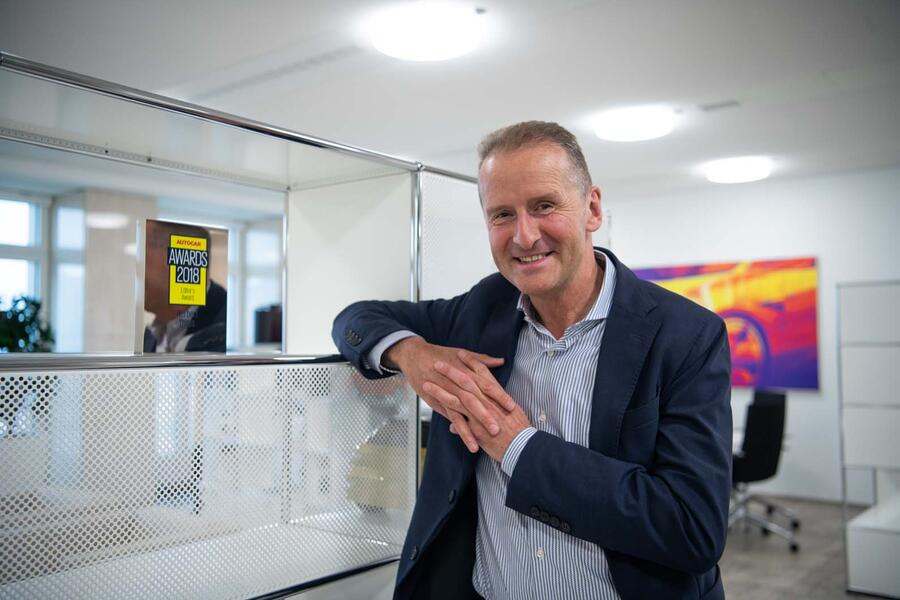What’s the shape of the future, I ask. Will electrified and conventional cars just fight it out? Will car makers try to force the market?
There’ll be no forcing, Diess insists. Progress will be variable and depend heavily on government incentives. “Tesla couldn’t have made its way without the $7500-a-car US government incentive,” says Diess, “or in Norway without their tax credits. But ultimately, the company that can make electric cars with positive margins will win. That’s where I think we have some chances…”
Talking future sales, Diess estimates that by 2021, between 5% and 6% of new European cars will be electric. That should expand to 20% by 2025, and between 30% and 40% by 2030. It’s an enormous change. How does it feel, I ask, knowing you’ll soon be shutting engine plants forever? “It’s true that in the next 10 years, we’re going to need to close about half our engine and gearbox plants,” he says, “but we’ll ramp up battery production enormously to compensate. We believe we’re covered for battery cell production until 2023 or 2024, but we will still need more capacity. That’s the big challenge. We have just launched the Audi E-tron and the constraint on delivery is the battery. We will see this for quite some time.”
If engine plants are going, when will diesels disappear for good? “Not yet,” the chairman answers carefully. “They’re still the best answer for bigger cars that travel long distances at higher speeds. They’re also the most economical, cleanest and best for CO2. Remember, even in 2025, 80% of new cars will have combustion engines…”

Like all his recent predecessors, Diess began talking about reorganising the VW Group within weeks of taking the big job. Is this, I wonder, because Porsche and Audi appear to make all the money? Again, the careful answer.
“It’s very difficult to look at Porsche or Audi on their own,” he explains. “There’s huge interdependence these days. Many Porsches are made in VW plants. Other Porsches use Audi platforms. Audi makes its 17% to 18% margin with the help of the MQB platform, which is used in around 400,000 of its cars. And that platform supports about eight million of our total output, so the synergies are enormous.”
Is size important? During the pre-diesel days of the Martin Winterkorn era, the VW Group stunned everyone by rapidly bumping Toyota off top spot as the world’s biggest car maker, a position it still narrowly holds. Does the target matter? Predictably, the answer is complex.
“I think in many places we are big enough,” the chairman replies. “Of course, there are markets where we must improve. We have about 19% in China and 20% in Europe, but we are limping along at 4% in the US. That should improve.